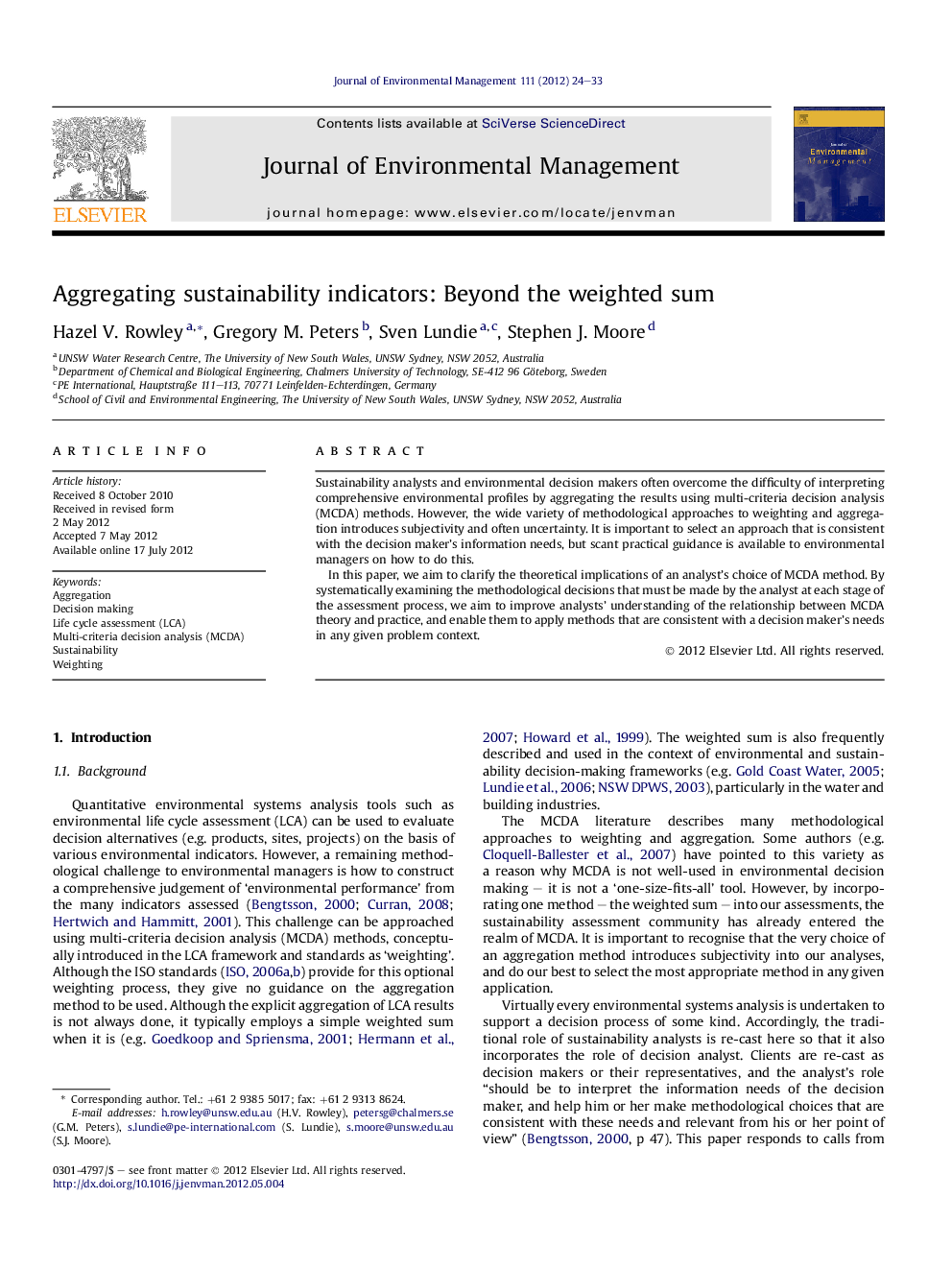| Article ID | Journal | Published Year | Pages | File Type |
|---|---|---|---|---|
| 1056537 | Journal of Environmental Management | 2012 | 10 Pages |
Sustainability analysts and environmental decision makers often overcome the difficulty of interpreting comprehensive environmental profiles by aggregating the results using multi-criteria decision analysis (MCDA) methods. However, the wide variety of methodological approaches to weighting and aggregation introduces subjectivity and often uncertainty. It is important to select an approach that is consistent with the decision maker's information needs, but scant practical guidance is available to environmental managers on how to do this.In this paper, we aim to clarify the theoretical implications of an analyst's choice of MCDA method. By systematically examining the methodological decisions that must be made by the analyst at each stage of the assessment process, we aim to improve analysts' understanding of the relationship between MCDA theory and practice, and enable them to apply methods that are consistent with a decision maker's needs in any given problem context.
► Forming an overall judgement on environmental preferability can be challenging. ► Methodological choices when aggregating multi-criteria data introduce subjectivity. ► The ubiquitous ‘weighted sum’ operationalises some quite restrictive assumptions. ► We clarify the theoretical implications of methodological choices in MCDA. ► We present a workflow to support choosing a suitable MCDA method.
